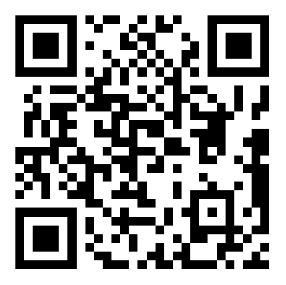2019年成人高考专升本英语考试试题及答案
I . Phonetics(5 points)
Directions: In each of the following groups of words, there are four underlined letters or letter combinations marked A, B, C and D. Compare the underlined parts and identify the one that is different from the others in pronunciation.Mark your answer by blackening the corresponding letter on the Answer Sheet.
1. A. however
B. narrow
C. shallow
D. snowy
2. A. adverb
B. birthday
C. curtain
D. cigar
3. A. receipt
B. reception
C. psychological
D. psychology
4. A. area
B. appeal
C. bacteria
D. cafeteria
5. A. naked
B. complicated
C. snowboarded
D. described
II. Vocabulary and Structure (15 points)
Directions: There are 15 incomplete sentences in this section. For each sentence there are four choices marked A, B, C and D. Choose one answer that best completes the sentence and blacken the corresponding letter on the Answer Sheet.
6. I like __________ the clouds at sunset because it seems relaxing.
A. watch
B. to watch
C. watched
D. watching
7. Unless you work hard you __________ your test.
A. will pass
B. will not pass
C. would pass
D. would not pass
8. Do earthquakes __________often in North America?
A. break
B. break out
C. happen to
D. occur
9. Nowhere else in the world__________more friendly people than in this small town.
A. you might find
B. you will find
C. can you find
D. should you find
10. It looks __________the family has got a lot of problems.
A. as long as
B. as if
C. while
D. though
11. You may think you know the answer but you don't, __________ ?
A. don't you
B. may you
C. may not you
D. do you
12. I've worked here since I__________ Harvard Business School.
A. leave
B. left
C. have left
D. had left
13. -- Would you prefer tea or coffee?
-- I __________. have some coffee, please.
A. will
B. am going to
C. am about
D. would
14. -- How much sugar is left?
——__________.
A. None
B. Nothing
C. Not many
D. Few
15. You __________see the doctor if that back ache persists.
A. better
B. better have
C. have better
D. had better
16. Please fillthis online application form.
A. up
B. on
C. out
D. with
17, -- I've never seen that movie.
——__________ have I.
A. So
B. Either
C. Neither
D. Too
18. -- __________do you play tennis?
-- Twice a month.
A. When
B. What
C. How often
D. How
19. He__________ that he was going to visit his sister in Ohio.
A. said
B. talked
C. told
D. spoke
20.__________explores the nature of guilt and responsibility and builds to a remarkable conclusion.
A. The written beautifully novel
B. The beautifully written novel
C. The novel beautifully written
D. The written novel beautifully
Iii. Cloze (30 points)
Directions: For each blank in the following passage, there are four choices marked A, B, Cand D.Choose the one that is most suitable and mark your answer by blackening the corresponding letter on the Answer Sheet.
Hawaii, the youngest state of the United States, is different in many ways from the mainland states. The Hawaiian people are a mixture of the 21 Hawaiians and many immigrants who arrived 22 When the first pineapple plantations 23 in Hawaii in the 1900's, there were not enough people living on the islands to do all the work.24 more came: the Chinese, Japanese, and the Portuguese were the main groups.
For many years, Hawaiian customs were looked down on or 25. Now there is new pride in the old ways. Children are learning the 26 language and the traditional songs and dances. At the University of Hawaii there is a great deal of interest in the history of the islands and the culture of the27.
Visitors to the islands 28to see the island paradise as it 29to be. Large numbers of tourists from the Mainland 30 in Hawaii daily. Signs of modern tourism are 31 Honolulu and its suburbs, a quiet area of about 250,000 thirty years 32, is now a crowded area of 800,000residents and 33.
As you drive around the island of Oahu, you can find some of the beaches are closed 34 the public, and more and more tourist resorts are being built in areas that were unspoiled.Hawaiians 35 about what will happen to the old way of life.
21. A. local
B. original
C. folk
D. migratory
22. A. later
B. first
C. earlier
D. last
23. A. planted
B. would plant
C. were being planted
D. had been planted
24. A. When
B. That
C. So
D. Though
25. A. respected
B. admired
C. damaged
D. ignored
26. A. Chinese
B. Hawaiian
C. Japanese
D. Portuguese
27. A. past
B. today
C. America
D. other countries
28. A. enjoy
B. willing
C. want
D. are like
29. A. are used
B. was
C. used
D. would
30. A. approach
B. arrive
C. Reach
D. stay
31. A. somewhere
B. anywhere
C. nowhere
D. everywhere
32. A. before
B. ago
C. Over
D. near
33. A. tourists
B. immigrants
C. people
D. crowds
34. A. for
B. from
C. toward
D. to
35. A. wonder
B. think
C. puzzle
D. worry
IV. Reading Comprehension (60 points)
Directions: There are five reading passages in this part. Each passage is followed by fourquestions. For each question there are four suggested answers marked A, B, C and D. Choose one best answer and blacken the corresponding letter on the Answer Sheet.
Passage One
Man's story in China began many thousands of years ago.Remains of an early form of man discovered in China, known as Peking Man, indicate that Stone Age men lived in the area as long as 500,000 years ago.During the centuries that followed, their descendants laid the foundations of civilization in China.
Throughout its history, China has been a rich source of inventions. Silk, the compass, tea and porcelain originated there. In addition, they are responsible for the invention of paper and printing.
The Chinese had used ink as early as 1200 B. C., an excellent type which they made from lampblack and which is known in English as India ink or China ink. By the end of the first century A. D., the Chinese had invented paper.
The Chinese also invented printing. Early Chinese printing is called block printing. The printer carved raised characters on a block of wood, wet the surface of the characters with ink, and pressed sheets of paper against them. Printers in the llth century went on to invent movable type of baked clay. The characters of the movable type could be rearranged to form different words and thus be used over and over again. The Chinese alphabet has about 40 thousand characters. Because of the difficulty of producing so many pieces of type, most Chinese printers continued to use block printing.
36. A good synonym for the underlined word "descendants" in paragraph 1 is__________.
A. foreigners
B. following generations
C. enemies
D. fossilized remains
37. The name of an earlier form of man found in China is__________.
A. New Stone Man
B. Silk Man
C. Peking Man
D. India Man
38. Which type of printing is more convenient based on the passage?
A. Movable type.
B. Baked clay.
C. Block printing.
D. Wet ink.
39. This passage talks mostly about__________.
A. the landforms of China
B. the people of China
C. Chinese explorers
D. Chinese history
Passage Two
American Blacks experienced a revolution after 1945, a revolution in expectations.Following World War Ⅱ, the steady movement toward first-class citizenship for Black people quickened, with significant actions taking place in courts of law, in voting booths, in restaurants and in the streets of the nation.
A decade of intense civil rights activity was launched in 1954 when the United States Supreme Court declared segregated schools to be unconstitutional.In 1955, Dr.Martin Luther King, Jr.,effectively organized the Blacks of Atlanta, Georgia, in a bus boycott. The boycott lasted two years,and when it was over, Blacks no longer were degraded by being forced to sit or stand in the rear of buses.
In 1960, a group of Black college students decided that they, as well as white persons, had the right to eat at a lunch counter in Greensboro, North Carolina.This sit-in sparked an aggressive national movement and, in the next few years, thousands of young men and women--Black and White,North and South--overturned local laws and customs that had maintained segregation. Sit-ins, pray-ins, freedom rides, freedom marches and demonstrations to open all schools to Black children took place across the nation.
40. Several important actions took place to change the status of black people__________.
A. after World War II
B. in 1954
C. before 1945
D. in 1960
41. In which city was the bus boycott organized?
A. Georgia.
B. Greensboro.
C. North Carolina.
D. Atlanta.
42. Who are the first to make the success of sit-in become true?
A. Black college students and whites.
B. First-class citizens.
C. The Blacks of Atlanta.
D. Young men and women in Greensboro.
43. The best title for this passage could be
A. Black History
B. Educational Opportunities for Blacks
C. The Fight for Equality
D. Civil Rights Workers of the '60s
Passage Three
People often speak of fire as though it were a living creature--It grows, dances, needs oxygen,feeds on whatever it can find, and then dies. And when a forest fire rages out of control, threatening human lives and homes, it must be fought like a "wild animal. " The fight is often desperate, since firefighters' best efforts may be dwarfed by the fury of a large fire. But the fire's own traits can be used
against it.
The heated air above a fire rises in a pillar of smoke and burnt gases, pulling fresh air in from the sides to replace it. Firefighters use this fact when they "fight fire with fire. " They start a fire well in front of the one which they are fighting. Instead of traveling on in front of the huge fire, the smaller fire is pulled back toward it by the updrafts of the larger blaze. As it travels back to meet the large fire, the smaller backfire burns away the fuel that the forest fire needs to survive.
Even when a backfire has been well set, however, the fire may still win the struggle. The wind which the firefighters used to help them may now become their enemy. When the backfire meets the main fire, before both die for lack of fuel, there is tremendous flame, great heat and wild winds. A strong gust may blow the fire into the treetops beyond the area, giving the fire new fuel and a new life.
44. This passage focuses on__________.
A. how fires start
B. damage caused by fire
C. the fascination of fire
D. fighting forest fires
45. A backfire is started__________.
A. behind a forest fire
B. ahead of a forest fire
C. on the sides of a forest fire
D. all around a forest fire
46. This passage suggests that a fire will travel__________.
A. faster than a horse can run
B. in all directions at the same speed
C. in whatever direction the wind is blowing
D. toward the nearest source of fuel
47. In the last paragraph, the writer again refers to the fire as a living creature by saying that it__________.
A. can be blown around by the wind
B. dwarfs man's best efforts
C. heats the air above it
D. may still win the struggle
Passage Four
When Abraham Lincoln was a lawyer in rural Illinois, he and a certain judge in town once got to bantering with one another about horse trading. The upshot of the discussion was that they agreed that the next morning, at nine o'clock, they would meet in front of the general store and make a trade.
Each would bring a horse, unseen by anyone up to that hour. If either backed out of the deal, he would forfeit $25. The money from each man was held by the local banker.
The next morning, at the appointed hour, the Judge, came up the dirt road, leading the sorriest looking specimen of a horse ever seen in those parts of Illinois. The large crowd viewing the spectacle burst out laughing, already knowing that Abe Lincoln was bound to get the worst of the deal. A poorer horse just couldn't exist anywhere and still be walking.
In a few minutes,however,Mr.Lincoln was seen approaching the general store carrying something quite large and bulky on his shoulders. As he drew nearer, the crowd saw what it was, and great shouts and laughter broke out. The shouts and laughter soon broke into a thunderous roar when Mr. Lincoln, looking carefully and seriously over the Judge's animal, set down his sawhorse (锯木架), and exclaimed, "Well, Judge, this is the first time I ever got the worst of it in a horse trade. "
48. This passage concerns__________.
A. the life of Abe Lincoln
B. a horse trade made by Abe Lincoln
C. a gambling in Illinois
D. Abe Lincoln's philosophy
49. It is evident that neither Lincoln nor the Judge was__________.
A. serious about their agreement
B. a native of Illinois
C. very knowledgeable about horses
D. in the mood for jokes
50. This passage attempts to arouse__________.
A. outrage
B. tears
C. sympathy
D. laughter
51. A person who banters is__________.
A. singing
B. insulting
C. joking
D. deceiving
Passage Five
Shoes are outer coverings for the foot. They have soles, and most have heels. The upper part of most shoes extend no higher than the ankle. Boots are footwear that reach beyond the ankle. People wear shoes to protect their feet from harsh weather, sharp objects, and uncomfortable surfaces. Shoes are also an important part of people's clothing. As a result, fashion often determines the style of shoes that individuals wear. The desire to be fashionable has led to many unusual shoe styles. In the 1300's,many European men wore shoes called crackowes, which had an extremely long toe. From the 1300's to the 1700's, some European women wore shoes with really thick soles causing walking to be virtually impossible without support. Shoes once worn in the Orient were connected to a stilt(高跷) as high as six inches.
Traditionally, most shoes are made of leather. But many other materials are now used. Including canvas, velvet, and synthetic substances such as plastics. Footwear materials and style vary somewhat,depending on climate, custom, or other differences. Farmers in Netherlands often wear heavy wooden shoes that protect their feet from the damp environment while Japanese wear shoes outside their home but prefer soft slippers at home. In fact, people in some regions often wear foot coverings other than shoes. Some wear sandals during the hot summer and switch to warm boots for the cold winter.
52. What is the main topic of the passage?
A. The history of the shoes.
B. Shoes around the world.
C. The definition of shoes.
D. Shoes and fashion.
53. What can be inferred from the passage about different types of shoes?
A. Boots are defined to be higher than shoes.
B. People in the 1300's to 1700's like to wear uncomfortable shoes.
C. People in Japan do not like to wear shoes.
D. History has proven that the best shoes are made of leather.
54. According to the passage, what is the main reason for people to wear shoes?
A. To look fashionable.
B. To feel comfortable.
C. Because everyone else wears them.
D. To protect their feet.
55. What is a type of shoes that is mentioned in the passage?
A. Slippers.
B. Sandals.
C. Soles.
D. Crackowes.
V. Daily Conversation (15 points)
Directions: Pick out five appropriate expressions from the eight choices below and complete the following dialogue by blackening the corresponding letter on the Answer Sheet.
A. Where have you been
B. What do you do
C. An interesting place
D. a part-time job
E. And what do you do
F. been there
G. That sounds interesting
H. Which restaurant
Jason: Where do you work, Andrea?
Andrea: I work for Thomas Cook Travel.
Jason: Oh, really? 56 there?
Andrea: I'm a guide. I take people on tours to countries in South America, like Peru.
Jason : 57 !
Andrea: Yes, it's a great job. I love it.58?
Jason: I'm a student, and I have 59, too.
Andrea: Oh? Where do you work?
Jason: In a fast-food restaurant.
Andrea : 60?
Jason : Hamburger Heaven.
VI. Writing (25 points)
Directions: For this part, you are supposed to write a letter in English in 100-120 words based on the following situation. Remember to write it clearly.
61.你(Li Yuan)的一个朋友准备出院,写封信表示宽慰,并鼓励他/她。其内容如下:
(1)如何得知的消息;
(2)对他/她的出院表示高兴;
(3)提供帮助。
本文标签: 湖南成考 英语 2019年成人高考专升本英语考试试题及答案
转载请注明:文章转载自(http://www.hnck.hn.cn)
《湖南成考网》免责声明
(一)由于各方面情况的调整与变化本网提供的考试信息仅供参考,敬请以教育考试院及院校官方公布的正式信息为准。
(二)本网注明信息来源为其他媒体的稿件均为转载体,免费转载出于非商业性学习目的,版权归原作者所有。如有内容与版权问题等请与本站联系。联系邮箱:812379481@qq.com
-
湖南成人高考报考服务
-
2025年全国成人高考预计还有
00天
- 考试时间:10月19、20日
- 湖南成考函授站报名入口 湖南成考院校专业查询
热门资讯
常见问题
-
湖南成考微信公众号
-

扫一扫关注[
微信公众号 ](湖南成考重要资讯,一手掌握!)






